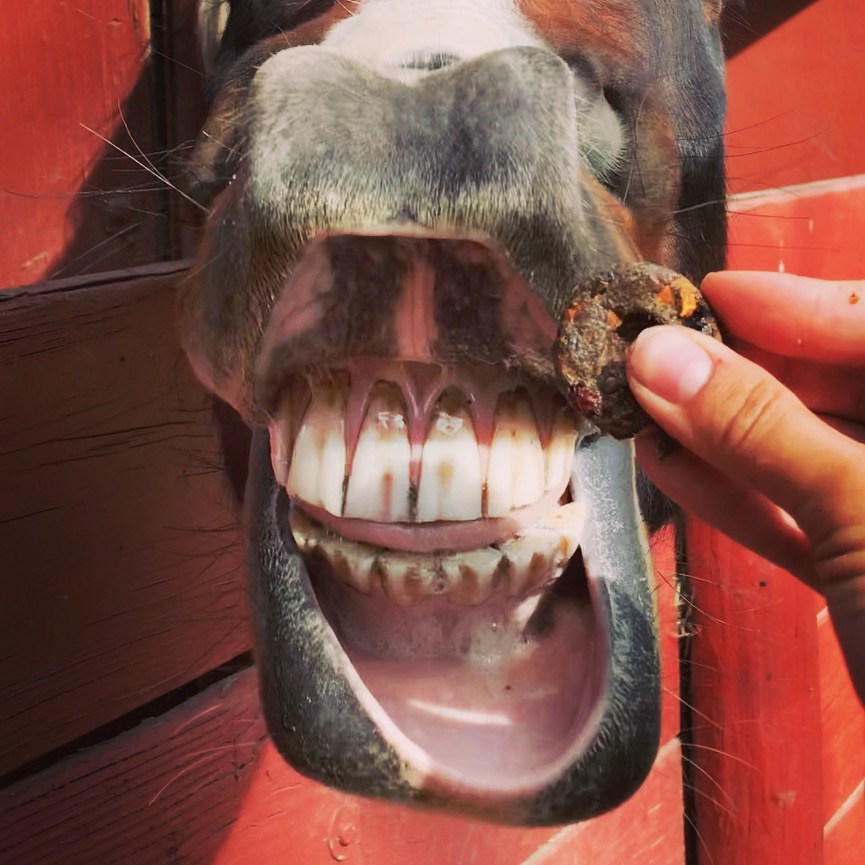TICKS: How to Protect Your Horse
- Twenty Four Carrots

- Apr 8, 2020
- 3 min read
Ah, spring has sprung! As the cold melts away, grass grows, flowers bloom and life is renewed! Unfortunately, springtime isn’t all fluff and fun as it’s in springtime that the dreaded insects return. Of these, few are loathed more than the tick. Which it turns out, isn’t even an insect at all. The tick is a member of the arachnid family and are relatives of spiders and scorpions (somehow this information makes us like ticks even less). Ticks are difficult to regulate and can cause a plethora of health problems for all animals they latch onto, horses included.
There are many different types of ticks, some of which are specific to horses. In the southern regions of the United States the tropical horse tick thrives. This tick prefers to reside in the ear canal but can also be found in the mane, tail or nasal passages as well. Moose ticks can be found from coast to coast of the United States and may spend their entire lives on a single equine host. They can be found in the ears, along the abdomen, legs and anal area. Both of these ticks are carriers of parasites and diseases that can be transmitted to horses, including Lyme disease.

Manage The Presence of Ticks
Different types of ticks prefer different environments. Mow pastures with long grass, trim hedgerows and trees with low-hanging branches. Sun exposure helps repel ticks. Short grass, thinner trees and trimmed hedges will all allow more sunlight to shine through and ticks will seek refuge elsewhere. Ticks who attach to horses may attach to other animals as well. Therefore, preventing or deterring wildlife (such as deer) from entering your horse’s pasture can be helpful in mitigating tick numbers. Also, if you don’t mind collecting eggs, chickens make efficient hunters of all creepy crawlies, especially ticks!
Environmental control may help deter or reduce tick numbers but it most likely will not eliminate the problem completely. Applying a treatment directly to your horse is another option. There are “spot-on” treatments that can last for up to 2 weeks. These same products can also protect against other biting insects too. Spot-on treatments can be ideal, especially if you can’t see your horse every day. For a daily application, use a fly spray, balm, or oil that repels ticks.
Deworming your horse with Ivermectin in the spring is another effective way to kill ticks. Of course, the ticks have to latch on first for this to happen so it does not safeguard against disease but it will cause the ticks to “jump ship”. The ivermectin makes your horse’s body toxic to the tick. The perk to this method is that if you have a horse who is absolutely covered in ticks, after being dewormed the ticks will detach themselves, so no worry of their heads being left being in the skin which can happen after manual removal. If you’ve already dewormed your horse this spring, consult with your veterinarian before using this method.

How to Remove Ticks From Your Horse
Even with the most thorough tick prevention program, you may still find one latched on to your horse here and there. Be sure to check your horse for ticks daily and if you do happen to find one removing it properly is important. Resist the urge to grab the fattest part of the tick and rip it off, this method can leave its head buried in the skin and cause an infection. Instead, use a pair of tweezers and pinch the ticks’ head firmly where it enters the skin. Pull steadily away from the skin until the tick is released. There are tools available specifically for the use of removing ticks known as “tick keys” which ensure proper removal of the tick. Such tools are invaluable in tick prone areas! No matter what tool you use, after the tick is removed place it in a small container of rubbing alcohol which will kill it.
In Summary…
Managing ticks is a never ending task. From keeping on top of landscaping to daily tick repellent applications, you will certainly have your work cut out for you! However, by creating a proactive plan and sticking to it you will ensure your horse’s maximum comfort this tick season and lessen the chances of your horse contracting a tick related disease of parasite.



Comments